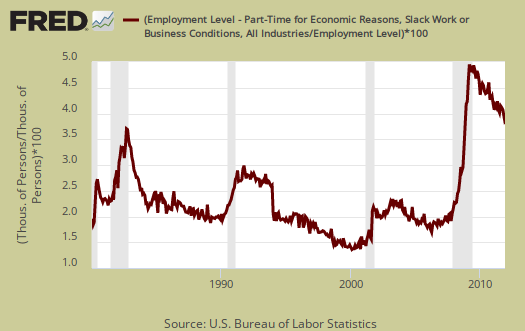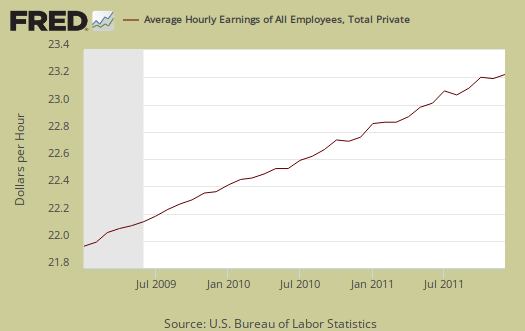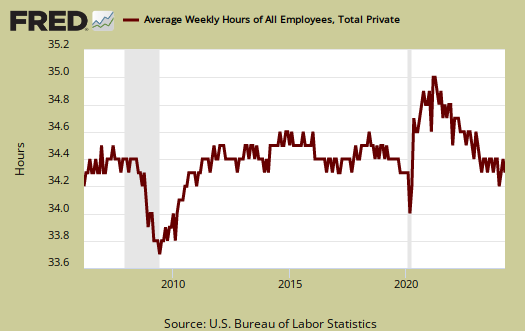December's unemployment report had a little indicator of better news. A recession indicator, those forced into part-time hours due to slack economic conditions just plummeted. Overall, people being forced into part-time jobs declined by 371,000 in a month, to a tally of 8,098,000 people. A whopping 5.75% of total employed people are stuck in part-time jobs because that's all they could get. People in part-time jobs due to slack work conditions decreased -273,000, or -4.89%. Slack business conditions cause employers to cut hours of their employees. People who could only get a part-time job but want and need full time, decreased by -77,000, which is a -3.09% monthly decline.

Part time workers who need full time income is the ultimate hidden wage arbitrage. They count as employed, the job counts as a payroll job, yet in terms of wages and earnings, these people are hurting. It's bad enough one simply cannot make it on a full-time minimum wage job, period, in the United States. Forced to go part-time and your income can be cut in half. Involuntary Part-time also isn't a good sign for the economy. Slack business conditions as a reason for involuntary part-time work is often the predecessor to being laid off completely.
Below is a graph of forced part-time because they got their hours cut as a percentage of the total employed. If you want to see a recession economic indicator, this looks like a pretty damn strong one. See how closely the percentage increase matches recessions, the gray bars? See this month's decline? That's good news.

The percentage of people in part-time jobs due to slack economic conditions has stayed extremely high since the start of the Great Recession. The NBER declared the recession over in July 2009. That's only 2 and a half years ago now (sic).
There is another piece of news from this month's report which some are declaring as great, but we think ho-hum. That's average earnings and hours.
Average earnings for the private sector (drum roll please), increased 4¢, $23.24/hr. Last month was big fat $$ nothing, or no increase on average earnings. The worker bees, or non-supervisory jobs average pay had no increase from last month's $19.54/hr average hourly earnings. While it's difficult to separate out real management from workers, this statistic does imply regular working people did not see a wage increase for the month of December. The average weekly earnings for all are $799.46, yet it is astounding how low leisure and hospitality workers are paid. Their average weekly earnings are $347.39.
For the year, wages have increased 2.1%. Realize these wages are not real, or adjusted for inflation. The CPI index has increased 3.4% from November 2010 until November 2011. In other words, earnings are not keeping up with inflation. You could see wages not keeping up with inflation by the real income data.

The average work week for all private (not for the government) workers ticked up 0.1 hour. Hours increased 0.1 for all nonfarm payrolls to 34.4 hrs. 35 Hours is cut off for full-time by the BLS. For all workers classified as production or nonsupervisory hours also increased 0.1 to 33.7 hours. Manufacturing jobs are still full time, now 40.5 hours, a 0.1 hour increase, with 3.2 hours of overtime.
Take a look at how many industry sections are below 40 hours. Is a common practice among employers to keep workers below 40 hours, a common cut-off time to qualify for company benefits.

As you can see hours are no where near pre-recession levels and wages are not even keeping up with inflation. We'll have more overviews of employment data. In the meantime, here is this month's unemployment report overview.

Recent comments